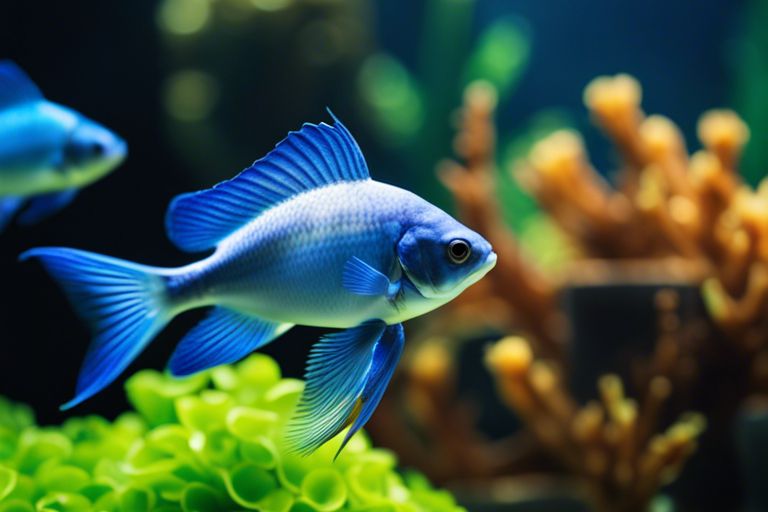Over the years, nutrition has been proven to play a crucial role in enhancing the immune systems of fish, just as it does in humans. Proper nutrition can help fish combat diseases, parasites, and other stressors that may weaken their immune defenses. By providing fish with a balanced diet rich in necessary nutrients, vitamins, and minerals, aquaculturists can help boost their overall health and resilience. In this blog post, we will explore the importance of nutrition in supporting fish immune systems and some key dietary considerations to optimize their immune response and well-being.

Nutritional Components Essential for Immune Function
Vitamins and Their Role in Immunity
Functioning as crucial micronutrients, vitamins play a crucial role in supporting a fish immune system. Vitamins such as A, C, D, and E are known for their antioxidant properties, helping to protect fish cells from damage caused by free radicals. Additionally, these vitamins can enhance immune function by supporting the production of antibodies and assisting in the development of immune cells.
Trace Minerals as Immune System Enhancers
On the other hand, trace minerals are equally important for boosting the immune system of fish. Minerals like zinc, iron, selenium, and copper are necessary for various immune functions, including enzyme activity, antioxidant defense, and immune cell development. Ensuring that fish have adequate levels of these trace minerals in their diet can significantly improve their immune response to pathogens.
Another example of a crucial trace mineral for fish immune system enhancement is manganese. Manganese plays a key role in the activation of enzymes involved in antioxidant defense and immune responses. Including manganese in the diet of fish can help strengthen their immune system and increase their resistance to diseases.
Dietary Strategies to Strengthen Fish Immune Systems
Probiotics and Prebiotics in Fish Diets
One effective dietary strategy to boost fish immune systems is the incorporation of probiotics and prebiotics in their diets. Probiotics are beneficial bacteria that help promote a healthy gut microbiome, which plays a crucial role in the immune response. Prebiotics, on the other hand, are non-digestible fibers that serve as food for these beneficial bacteria, further enhancing their growth and activity.
The Impact of Fatty Acids on Inflammation and Immunity
Fish diets rich in specific fatty acids, such as omega-3 and omega-6 fatty acids, have been shown to have a significant impact on inflammation and immunity in fish. These fatty acids play a key role in modulating immune responses and reducing inflammation, thereby strengthening the fish’s immune system and overall health.

Challenges and Considerations in Aquaculture Nutrition
Balancing Nutrient Requirements with Environmental Impacts
An important challenge in aquaculture nutrition is the need to balance the nutrient requirements of fish with the potential environmental impacts of aquafeed. While it is crucial to provide fish with the necessary nutrients for optimal growth and immune function, excess nutrients in aquafeed can lead to water pollution and adverse effects on aquatic ecosystems. Aquaculture practitioners must carefully consider the sourcing of ingredients and the formulation of feeds to minimize environmental impacts while meeting the nutritional needs of fish.
Addressing Disease Through Nutritional Interventions
Addressing disease through nutritional interventions is a key consideration in aquaculture nutrition. By including specific nutrients and additives in aquafeed, fish immune systems can be boosted to better resist pathogens, resulting in improved overall health and reduced disease outbreaks. Nutritional strategies such as incorporating immunostimulants, probiotics, and antioxidants into feeds can help enhance the immune responses of fish and increase their disease resistance.
Challenges in addressing disease through nutritional interventions include the need for thorough research to determine the most effective additives and optimal inclusion levels in aquafeed. Additionally, the cost-effectiveness and practicality of feeding strategies must be carefully evaluated to ensure their feasibility for aquaculture operations. Despite these challenges, the potential benefits of using nutritional interventions to improve fish immune systems and reduce disease risk make it a significant area of focus in aquaculture nutrition.

Future Directions in Fish Nutrition and Immune Health Research
Advances in Functional Feeds
Despite significant progress in understanding the link between nutrition and fish immune health, there is still much to explore in functional feeds. With ongoing advancements in feed technology, such as encapsulation of bioactive compounds and targeted delivery systems, researchers can formulate feeds that specifically enhance the immune system of fish. These functional feeds have the potential to revolutionize the aquaculture industry by improving disease resistance and overall health of farmed fish.
The Role of Nutrigenomics in Enhancing Immune Responses
Functional feeds play a crucial role in modulating gene expression and immune responses in fish. Nutrigenomics, the study of how nutrients influence gene expression, offers a promising approach to enhancing immune responses in fish through diet. By understanding the interactions between nutrients and genes, researchers can develop personalized feeding strategies that optimize immune function and disease resistance in different fish species.
Future Directions for Nutrigenomics
As we look to the future of fish nutrition and immune health research, nutrigenomics will continue to play a vital role in unraveling the complex interplay between diet and immune responses. By employing cutting-edge techniques such as transcriptomics and metabolomics, researchers can gain a deeper understanding of the molecular mechanisms underlying the beneficial effects of specific nutrients on fish immune systems. This knowledge will pave the way for the development of tailored nutritional interventions that target immune pathways, ultimately leading to healthier and more resilient fish populations in aquaculture.
Final Words
To wrap up, it is evident that nutrition plays a vital role in boosting fish immune systems. By providing the necessary nutrients, vitamins, and minerals that fish need to strengthen their immune defenses, aquaculturists can help enhance the overall health and resilience of their fish populations. By focusing on a well-balanced diet tailored to meet the specific needs of each species, aquaculturists can promote better growth rates, disease resistance, and overall productivity of their fish farms. It is crucial to prioritize nutrition as a key component of fish health management in order to ensure sustainable and successful aquaculture practices for the future.
FAQ
Q: Why is nutrition important for boosting fish immune systems?
A: Nutrition plays a crucial role in boosting fish immune systems by providing important nutrients that support overall health and immunity.
Q: What are some key nutrients that help enhance fish immune systems?
A: Key nutrients such as vitamins C and E, omega-3 fatty acids, and beta-glucans have been shown to enhance fish immune systems.
Q: How does a balanced diet contribute to a fish’s immune system?
A: A balanced diet ensures that fish receive all the necessary nutrients in the right proportions, which in turn strengthens their immune system and helps them fight off diseases.
Q: Can poor nutrition weaken a fish’s immune system?
A: Yes, poor nutrition can weaken a fish’s immune system, making them more susceptible to infections and diseases.
Q: Are there specific feeding strategies that can help boost fish immune systems?
A: Yes, incorporating immune-boosting ingredients like garlic, spirulina, and probiotics into the fish’s diet can help enhance their immune systems.
Q: How can fish owners ensure their fish are receiving proper nutrition for a healthy immune system?
A: Fish owners can consult with a veterinarian specializing in fish health to develop a proper feeding regimen tailored to their fish’s specific nutritional needs.
Q: What are some common signs of a weakened immune system in fish?
A: Common signs of a weakened immune system in fish include increased susceptibility to infections, slow wound healing, lethargy, loss of appetite, and abnormal behavior.











